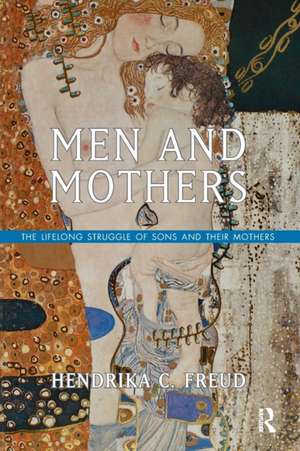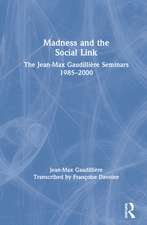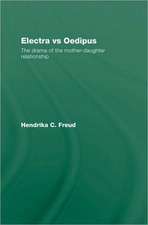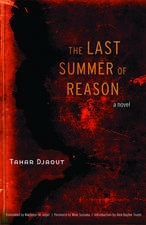Men and Mothers: The Lifelong Struggle of Sons and Their Mothers
Autor Hendrika C. Freud Traducere de Marjolijn De Jageren Limba Engleză Paperback – 2013
Preț: 332.06 lei
Preț vechi: 349.53 lei
-5% Nou
Puncte Express: 498
Preț estimativ în valută:
63.54€ • 66.51$ • 52.89£
63.54€ • 66.51$ • 52.89£
Carte tipărită la comandă
Livrare economică 31 martie-14 aprilie
Preluare comenzi: 021 569.72.76
Specificații
ISBN-13: 9781780490762
ISBN-10: 1780490763
Pagini: 224
Dimensiuni: 152 x 229 x 18 mm
Greutate: 0.45 kg
Ediția:New.
Editura: Taylor & Francis
Colecția Routledge
Locul publicării:Oxford, United Kingdom
ISBN-10: 1780490763
Pagini: 224
Dimensiuni: 152 x 229 x 18 mm
Greutate: 0.45 kg
Ediția:New.
Editura: Taylor & Francis
Colecția Routledge
Locul publicării:Oxford, United Kingdom
Public țintă
Professional Practice & DevelopmentCuprins
Foreword , Preface , Introduction , Proust and Freud as taskmasters , Love’s illusions , The fateful goodnight kiss , A new perspective on perversions , A different adolescence , Sadomasochism according to Proust , Moral and sexual masochism , Eroticism and cruel party games , Love’s devious means , What does the son want? Conclusion
Descriere
Not all men feel rivalry with their fathers to vie for love of their mothers. In some families mother becomes central figure for her son. A silent pact between mother and son leads to denial of differences, specifically between gender and generation. The author calls this mother-son bond, from which aggression has been banned symbiotic illusion.











